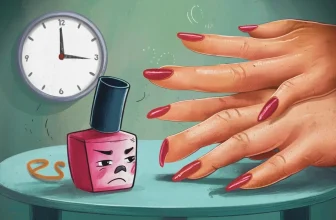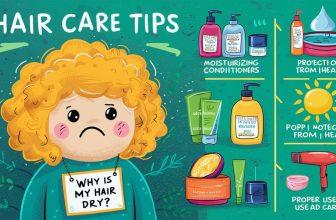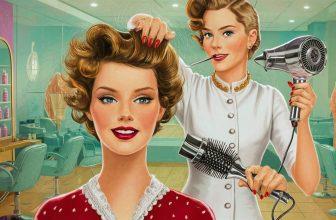How to Grow Your Hair Faster: 9 Natural Tips

Try natural tips like proper nutrition, scalp massage, and reducing stress to grow your hair faster. These simple yet effective methods can help promote hair growth and health. Incorporating these natural practices into your routine can make a significant difference if you want longer and healthier hair. By following these tips consistently, you can support your hair’s growth and achieve the luscious locks you desire. Explore the power of natural remedies and techniques that can help you achieve the hair of your dreams.
Understanding Hair Growth
Learn natural tips to promote faster hair growth. From scalp massage to a balanced diet, discover effective ways to support healthy hair growth. Understanding the hair growth process can help you implement these natural solutions for luscious locks.
Hair Growth Cycle
The anagen, catagen, and telogen phases are the three primary stages of hair growth. During the anagen phase, hair actively grows; in the catagen phase, hair transitions and stops growing; in the telogen phase, hair sheds and new hair begins to grow in this cycle.
Factors Affecting Hair Growth
Several factors impact hair growth, including genetics, nutritional deficiencies, hormonal imbalances, and environmental stressors. Understanding these factors can help in promoting healthier and faster hair growth. Hair growth is a natural process that undergoes various stages. In the anagen phase, hair actively grows, followed by the catagen phase where hair transitions, and finally, in the telogen phase, hair sheds to start anew. Factors like genetics, nutrition, hormones, and environmental factors play crucial roles in determining the speed and quality of hair growth. It’s essential to understand the hair growth cycle and influencing factors to promote optimal hair health and growth.
Healthy Diet For Hair Growth
When it comes to growing your hair faster, having a healthy diet plays a crucial role. Consuming the right nutrients can help nourish your hair follicles, improve their strength, and promote hair growth. In this article, we will explore the essential nutrients for hair health and the foods you should include in your diet to boost hair gain.
Essential Nutrients For Hair Health
To support hair growth, it is important to consume a balanced diet that includes the following essential nutrients:
- Protein: Your hair is primarily made up of protein, so including sufficient amounts of it in your diet is crucial. Lean meats, fish, eggs, dairy products, nuts, and legumes are all excellent sources of protein.
- Vitamin A: This vitamin helps the scalp produce sebum, which is necessary for hair growth. Include foods high in vitamin A in your diet, such as kale, sweet potatoes, carrots, and spinach.
- Vitamin E: Vitamin E is an antioxidant that helps protect your hair from damage and promotes healthy blood circulation to the scalp. Include foods like avocados, sunflower seeds, almonds, and spinach to get your daily dose of vitamin E.
- Vitamin C: This vitamin aids in the production of collagen, which is essential for hair to grow. Citrus fruits like oranges and lemons, berries, and bell peppers are excellent sources of vitamin C.
- Biotin: Biotin, also known as vitamin B7, is known to promote hair growth and prevent hair loss. You can find biotin in foods like eggs, nuts, sweet potatoes, and salmon.
- Zinc: Zinc not only supports hair growth but also prevents dandruff and hair loss. Zinc-rich foods include lentils, cattle, oysters, and pumpkin seeds.
Foods To Promote Hair Growth
Now that you know the essential nutrients for hair health, let’s explore some of the best foods you can include in your diet to encourage hair growth:
Foods |
Benefits |
| Fatty Fish (salmon, mackerel) | rich in omega-3 fatty acids, which support hair development by nourishing hair follicles. |
| Spinach | Loaded with iron, folate, and vitamins A and C, which help maintain a healthy scalp and promote hair growth. |
| Eggs | High in protein, biotin, and other essential nutrients that support hair growth and improve hair strength. |
| Avocado | Contains healthy fats, vitamin E, and vitamin C, all of which contribute to hair health and growth. |
| Nuts and Seeds (walnuts, almonds, flaxseeds) | Rich in protein, omega-3 fatty acids, and vitamins that nourish the scalp and promote hair growth. |
| Sweet Potatoes | High in beta-carotene, which converts to vitamin A in the body and promotes the production of sebum for healthy hair. |
By incorporating these foods into your diet, you can provide your body with the essential nutrients it needs to support hair growth. Remember, consistency is key, so make sure to maintain a healthy and balanced diet to see positive results in the long run.
Effective Hair Care Routine
- Gentle Shampooing Techniques, Use mild sulfate-free shampoos & avoid harsh scrubbing.
- Proper Conditioning And Moisturizing, Apply conditioner only to hair ends & keep it hydrated.
Natural Remedies For Hair Growth
Caring for your hair naturally is not only good for your overall health but can also help promote hair growth. Instead of relying on chemical-based products, several effective natural remedies can nourish your hair and stimulate growth. Incorporating these simple and affordable methods into your hair care routine can make a significant difference in the health and length of your hair.
Scalp Massage And Stimulating Oils
A scalp massage is a rejuvenating technique that helps promote blood circulation to the hair follicles, stimulating hair growth. You can perform a scalp massage using gentle circular motions, applying light pressure with your fingertips. To enhance the effect, you can consider using stimulating oils.
Stimulating oils like peppermint, rosemary, and lavender are known to have properties that increase blood flow to the scalp and nourish hair follicles. These oils can be mixed with a carrier oil such as coconut or olive oil before being gently massaged into the scalp.
When applying the oil, make sure to cover the entire scalp and leave it on for at least 30 minutes to allow the nutrients to penetrate the hair follicles. Afterward, you can rinse it out using a mild shampoo and lukewarm water.
Diy Hair Masks And Treatments
Another effective natural remedy for hair growth is the use of DIY hair masks and treatments. These masks are made from easily accessible ingredients found in your kitchen and are free from harmful chemicals that can damage your hair.
One popular hair mask option is a mixture of eggs and olive oil. Eggs are rich in protein and biotin, which are essential for hair growth. Mixing one egg with a tablespoon of olive oil creates a nourishing mask that can be applied to the hair and scalp. After around 30 minutes, remove the mask by washing it off.
Another option is an aloe vera treatment. Aloe vera has moisturizing properties and helps balance the pH level of the scalp, promoting healthy hair growth. Just take the gel out of an aloe vera leaf and put it straight on the scalp. After 30 minutes, leave it on and rinse with lukewarm water.
By incorporating regular scalp massages using stimulating oils and indulging in DIY hair masks and treatments, you can naturally enhance to grow hair and achieve luscious locks. These natural remedies are not only effective but also safe, providing your hair with the essential nutrients it needs to thrive.
Lifestyle Changes For Hair Health
When it comes to hair health, making lifestyle changes is crucial for promoting faster hair growth. Stress management and regular exercise are two key lifestyle changes that can significantly impact the health and growth of your hair. By incorporating these practices into your daily routine, you can support the natural growth and vitality of your hair.
Stress Management And Its Impact On Hair
Hair growth may be adversely affected by stress. When the body is under chronic stress, it can lead to imbalances in hormone levels, which may result in hair loss or slowed growth. Managing stress through practices such as meditation, yoga, or deep breathing exercises can help maintain a healthy balance of hormones and promote optimal hair growth.
Incorporating Regular Exercise
Regular exercise not only benefits your overall well-being but also plays a significant role in promoting hair growth. Engaging in physical activity improves blood circulation, ensuring that the hair follicles receive an adequate supply of nutrients and oxygen. Additionally, exercise helps reduce stress levels, further supporting optimal hair health.
Avoiding Damaging Practices
Hair is one of the most defining features of our appearance, and many of us desire long, luscious locks. However, the quest for faster hair growth often leads to damaging practices such as overexposure to heat and chemicals. In this section, we will explore how to avoid these damaging practices and promote healthy growth of hair.
Preventing Heat And Chemical Damage
Heat is a common culprit in causing hair damage. Excessive use of hair dryers, straightening irons, and curling wands strips the hair of its natural moisture, resulting in dry, brittle strands. To prevent heat damage, limit the use of these styling tools and always use a heat protectant spray before applying heat to your hair. Air-drying your hair whenever possible can also help minimize heat damage.
Chemical treatments, such as bleaching and chemically straightening, can severely damage the hair shaft. If you regularly color or chemically treat your hair, consider opting for gentler alternatives or giving your hair a break in between treatments to allow for natural growth and repair.
Protective Hairstyles
Tight hairstyles, such as braids, ponytails, and buns, can cause tension on the roots and lead to hair breakage. Instead, opt for loose, protective hairstyles that minimize pulling on the hair. This can include styles such as twists, Bantu knots, or loose braids that distribute tension more evenly across the hair.
Professional Treatments And Consultation
Discover professional treatments and consultations for natural hair growth. Explore 9 effective tips for faster hair growth in this comprehensive guide. Unlock the secrets to achieving healthy and luscious locks with expert advice and natural solutions. Professional Treatments and Consultation When it comes to growing your hair faster, seeking Professional Treatments and Consultation can be a game-changer. By exploring expert Scalp Treatments and seeking advice from Hair Care Experts, you can accelerate your hair growth journey significantly. Benefits of Scalp Treatments – Scalp treatments promote hair growth – Nourish the scalp and hair follicles – Improve blood circulation for healthier hair – Hydrate and strengthen the hair strands – Prevent scalp issues like dandruff and dryness Seeking Advice from Hair Care Experts – Professionals can analyze your hair health – Provide personalized solutions for growth – Suggest suitable treatments and products – Offer tips for maintaining healthy hair – Guide you on proper hair care routines
Maintaining Overall Hair Health
1. Drink Plenty of Water: – Stay hydrated from within by drinking at least 8 glasses of water per day. – Staying hydrated promotes overall hair health, leading to stronger and longer hair.
2. Use a Moisturizing Shampoo and Conditioner: – Choose a shampoo and conditioner specifically formulated to moisturize and nourish your hair. – Seek for products with natural ingredients such as shea butter, coconut oil, or argan oil. – These ingredients help retain moisture and nourish your hair from the roots to the ends.
3. Regularly Deep Condition: – Give your hair a once- or twice-weekly deep-conditioning treatment. – Deep conditioning helps to restore moisture, repair damage, and promote hair growth. – Apply the deep conditioner to your hair, focusing on the ends.
4. Avoid Over-Styling: – Excessive heat styling tools, such as flat irons and curling irons, can strip your hair of moisture. – Minimize the use of heat styling tools and always apply a heat protectant spray before styling.
5. Avoid exposing your hair to the sun: The sun’s dangerous UV rays can cause damage to your hair just like they can to your skin. – Wear a hat or use a UV-protectant spray on your hair when spending extended periods in the sun. Importance of Regular Trimming Regular trimming may seem counterintuitive when trying to grow your hair faster.
6. Prevents Split Ends: – Regular trimming helps to get rid of split ends, which can lead to further breakage and slower hair growth. – Split ends make your hair look frizzy and unkempt, hindering its ability to grow longer.
7. Promotes Hair Growth: – When you trim off split ends, you allow your hair to grow healthier and faster. – Removing dead and damaged ends encourages hair growth from the roots.
8. Maintains Hair Shape and Health: – Regular trims keep your hair looking neat and maintain its shape. – Trimming helps to distribute the hair’s natural oils, keeping it nourished and healthy.
9. Conclusion: To grow your hair hydrated and nourished and get regular trims, you can effectively maintain overall hair health. Hydration and nourishment provide the necessary foundation for faster hair growth, while regular trims prevent split ends.
FAQ’s
In seven days, how can I grow my hair naturally?
To improve hair growth in 7 days, massage the scalp with coconut oil, eat a balanced diet rich in protein and vitamins, avoid heat styling, and use a silk pillowcase to minimize breakage. Stay hydrated and reduce stress for optimal results.
How Can I Grow Hair Ten Times Faster?
To make your hair grow faster, eat a balanced diet, minimize heat and chemical damage, massage your scalp, and use hair growth products. Regular trims and avoiding tight hairstyles also help.
How To Get Fuller Hair?
Achieve fuller hair by using volumizing products, avoiding over-styling, eating a balanced diet, protecting hair from heat damage, and getting regular trims.
How Can I Naturally Grow My Hair Faster?
There are several natural ways to promote hair growth, such as eating a balanced diet, avoiding heat styling tools, massaging your scalp, and using essential oils like rosemary or peppermint.






